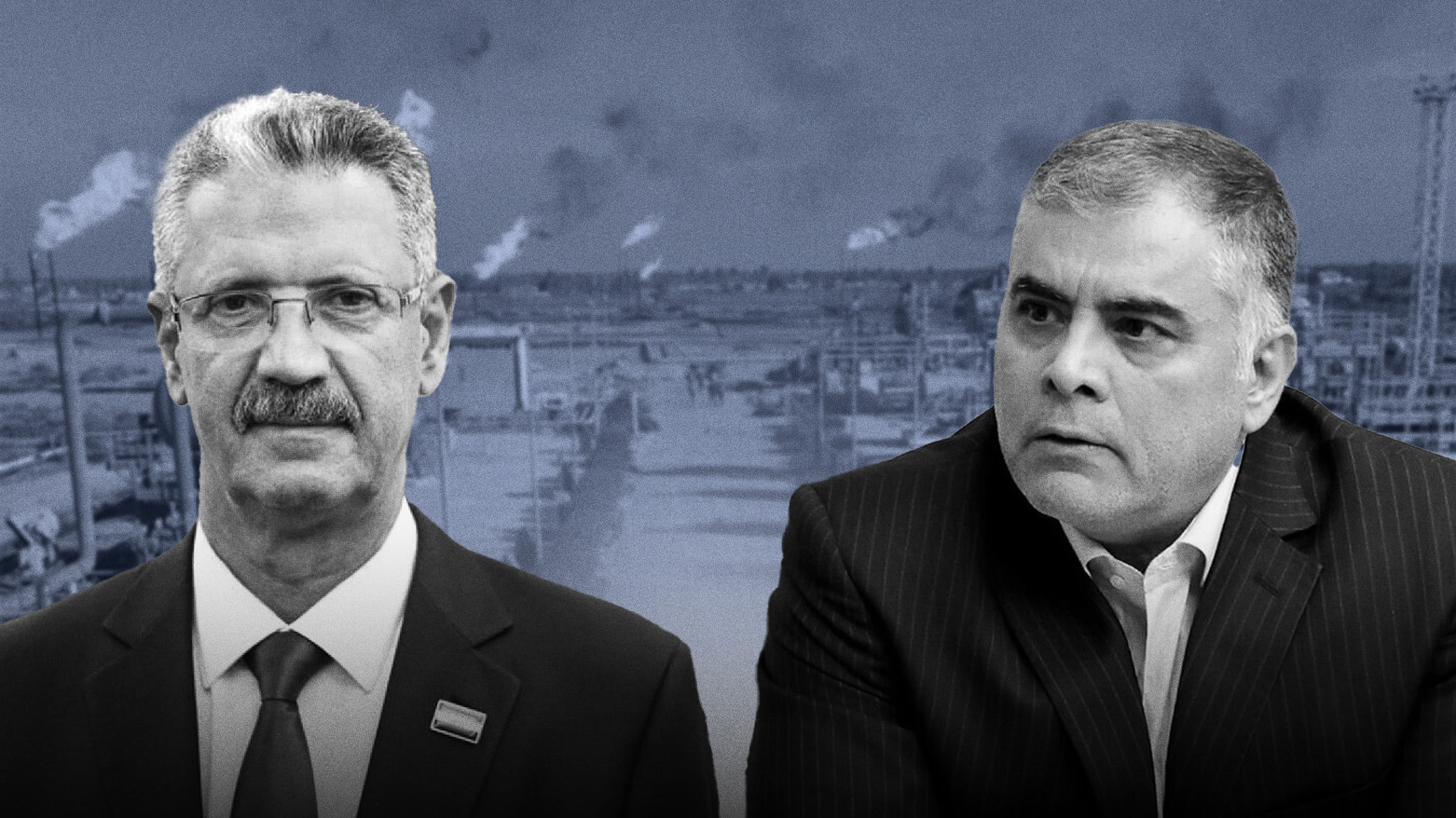Iranian Oil Chief in Baghdad to Seal Energy Deals
“The meetings are expected to culminate in the signing of several memorandums of understanding (MoUs) aimed at enhancing bilateral cooperation,” IRNA wrote.

By Kamaran Aziz and Dler Mohammed
ERBIL (Kurdistan24) — Iran’s Oil Minister Mohsen Paknejad arrived in Baghdad on Monday for a two-day visit “to bolster joint energy initiatives and finalize new agreements in the oil and gas sectors,” According to Iranian state-run media (IRNA). “Paknejad was invited by his Iraqi counterpart to discuss expanded collaboration across several energy-related fields.”
Paknejad’s trip underscores the alignment between Tehran and Baghdad, particularly in the energy sector. Over the next two days, the Iranian minister is scheduled to meet with top Iraqi officials, including Iraq's Ministers of Oil and Electricity, as well as Prime Minister Mohammed Shia al-Sudani.
“The meetings are expected to culminate in the signing of several memorandums of understanding (MoUs) aimed at enhancing bilateral cooperation,” IRNA wrote.
Among the most anticipated outcomes of the visit are talks relating to the supply of Iranian gas to Iraq’s electricity plants—a critical component of Baghdad's ongoing efforts to address nationwide power shortages. These MoUs are also expected to pave the way for the implementation of joint energy projects, particularly in the oil, gas, and petrochemical industries.
Paknejad, speaking before his arrival, expressed optimism about the progress already made in previous bilateral engagements. “We have very good relations and interactions with Iraq in various areas,” he stated. “Cooperation—particularly in the oil industry and the implementation of joint projects—is already underway.”
This visit comes at a time when Iraq faces mounting pressure to diversify its energy sources. According to a comprehensive report by the Atlantic Council, Washington recently removed its sanctions waiver that had allowed Baghdad to import Iranian electricity, though it left intact a waiver for importing Iranian natural gas. The move, seen by Washington as a step toward reducing Iraq’s dependency on Iran, aligns with U.S. efforts to encourage Baghdad to invest in domestic and regional energy alternatives.
While Iranian electricity exports account for a small share—around 2%—of Iraq’s total energy supply, Iranian natural gas is far more significant, fueling power plants that contribute to over 40% of Iraq’s electricity generation. Iraq continues to suffer from a supply-demand gap worsened by high population growth, years of conflict, and crumbling infrastructure. Nearly 40 percent of electricity generated is lost in transmission and distribution.
As a result, Iraq is increasingly engaging with other partners to broaden its energy portfolio. Agreements have been signed with Jordan, Qatar, and the GCC Interconnection Authority. Baghdad has also advanced cooperation with TotalEnergies and is exploring Turkmenistan gas imports and LNG supplies from the United States and Gulf countries.
Despite these diversification efforts, Iranian energy exports remain central to Iraq’s current energy ecosystem. However, energy experts warn that Tehran may reduce its gas exports this summer due to its own domestic shortages. In fact, Iran experienced rolling power blackouts and diverted gas from electricity generation to home heating in late 2024, severely limiting its export capacity.
Budgetary constraints further challenge Iraq's diversification push. With over 90 percent of state income derived from oil revenues and more than 40 percent of the budget allocated to public salaries and pensions, funds for energy infrastructure are often insufficient. Political instability, parliamentary obstruction by factions aligned with Iran-backed militias, and inconsistent payments to foreign contractors have also dampened investor confidence.
The timing and nature of Minister Paknejad’s visit reflect ongoing challenges in aligning Iraq’s energy partnerships with U.S. policy goals. While Washington continues to encourage Baghdad to reduce its energy dependence on Tehran, Iran’s renewed push for deeper energy cooperation—welcomed by top Iraqi officials—suggests the complexities involved in reshaping these longstanding ties.